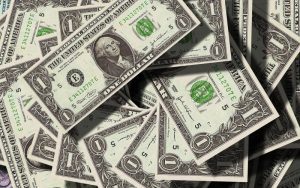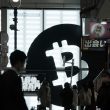In the intricate web of global finance, few threads are as vital and enigmatic as foreign exchange (forex) trading. For the layperson, forex may seem a distant and arcane realm, confined to the screens of bankers and financiers. However, its impact reverberates far beyond trading floors, reaching into the very heart of economies worldwide. In this exposé, we delve into the labyrinthine world of forex trading and uncover its profound influence on the economic landscape of the United States.
The Forex Market: A Global Stage
Forex, short for foreign exchange, is the decentralized marketplace where currencies are bought and sold. It operates 24 hours a day, five days a week, spanning major financial centers across the globe. Trillions of dollars change hands daily, making it the largest and most liquid market in the world.
At its core, forex trading is about exchanging one currency for another in the hopes of profiting from fluctuations in exchange rates. These fluctuations can be driven by a multitude of factors, including geopolitical events, economic data releases, and central bank policies. Traders analyze these variables meticulously, seeking to anticipate market movements and capitalize on them.

The Dollar’s Dominance
In the forex arena, the US dollar reigns supreme. As the world’s primary reserve currency, it serves as the linchpin of global trade and finance. Consequently, the movements of the dollar reverberate throughout the entire forex market, influencing exchange rates for currencies worldwide.
The Federal Reserve, the US central bank, plays a pivotal role in shaping forex dynamics through its monetary policy decisions. Interest rate adjustments, quantitative easing programs, and forward guidance statements issued by the Fed can trigger seismic shifts in currency valuations, sending shockwaves across financial markets.
Impact on the USA Economy
The symbiotic relationship between forex trading and the US economy is profound and multifaceted. A strong dollar can bolster America’s purchasing power abroad, making imports cheaper and fueling consumer spending. Conversely, a weaker dollar can stimulate exports, making American goods more competitive on the global stage.
Moreover, forex volatility can have far-reaching implications for businesses, investors, and policymakers alike. Fluctuations in exchange rates can affect corporate earnings, investment decisions, and inflationary pressures, shaping the trajectory of economic growth.
The Dark Underbelly
Despite its pivotal role in the global economy, the forex market is not immune to controversy and malpractice. Instances of market manipulation, insider trading, and illicit activities have tarnished its reputation, underscoring the need for robust regulatory oversight and enforcement.
Furthermore, the meteoric rise of algorithmic trading and high-frequency trading (HFT) has introduced new complexities and risks into the forex ecosystem. These lightning-fast automated systems can execute trades in milliseconds, amplifying market volatility and potentially exacerbating flash crashes.
Conclusion: Navigating the Forex Maze
In the intricate tapestry of global finance, forex trading stands as a linchpin, intricately woven into the fabric of the USA economy. Its influence is pervasive and profound, shaping exchange rates, driving economic activity, and molding the fortunes of nations.
As we navigate the complex terrain of markets, it becomes increasingly clear that understanding its dynamics is paramount. In an era of globalization and interconnectedness, the threads of trading bind nations together in a delicate dance of supply and demand, shaping the economic destiny of the United States and the world at large.











